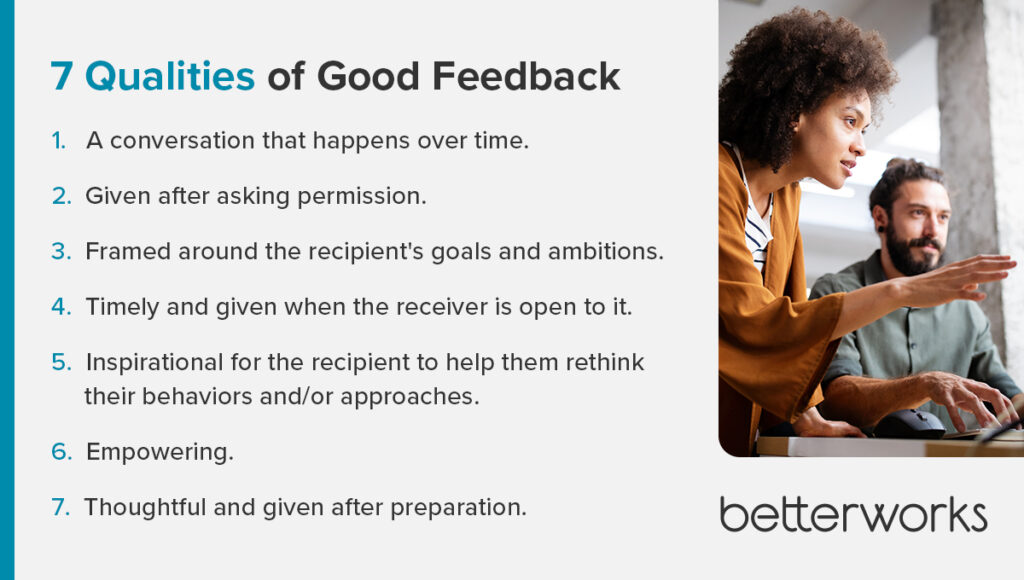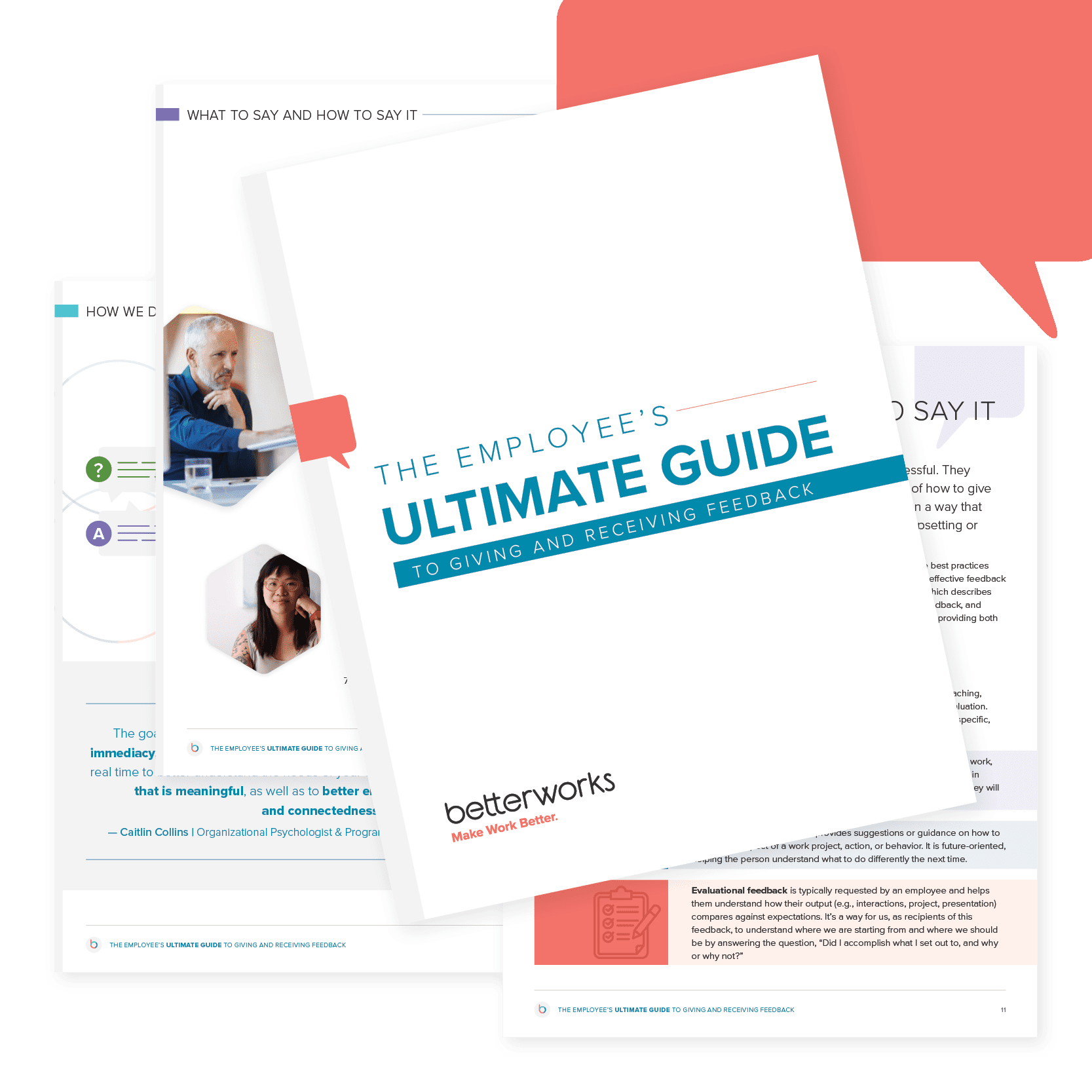Effective feedback can revolutionize workplace performance, but most organizations don’t train managers or employees to provide feedback that makes a difference.
That’s why we invited June Bower, talker-in-chief at TalkShop Workshops, to join organizational psychologist and Betterworks program strategy director Caitlin Collins to present “The Feedback Formula: Empowering Managers to Drive Performance,” one of the sessions in our People Fundamentals webinar series.
To make feedback effective, we need to define it. Bowers offered a relatively simple concept. “Really good feedback is about having a back-and-forth discussion,” she said. “It’s about reaching an understanding.”
Check out these highlights from the conversation to discover how to improve feedback processes and outcomes in your organization, or listen to our People Fundamentals podcast that recaps the webinar.
Subscribe wherever you listen to podcasts: Apple Podcasts | Spotify | Google Podcasts
Invest in an ongoing conversation
You can’t present one piece of feedback and expect the recipient to change their behaviors. “You’ll achieve the goal of having gotten the feedback out there,” Bower said, “but will the person really change?”
Effective feedback has to be built into an ongoing conversation. “Really great feedback happens over time,” Bower said. Both parties need to build a relationship and mutual trust to make the feedback meaningful.
Historically, managers have delivered feedback infrequently, usually during formal performance appraisals. “A performance review is just one potential place to give feedback,” Bower said. “If you’re saving feedback for the performance review, you’re not going to achieve the goal of getting somebody to change.”
Waiting too long separates the feedback from what you’re seeing, and that detachment dilutes your impact. But speaking up too early can be detrimental, too. “If you want people to change, then give them feedback when they’re going to most likely be open to it,” Bower said.
Timing also matters when feedback is emotionally charged, as people are more likely to be closed off and defensive, Collins said. Finding the right time to offer feedback as part of a continuous conversation can help minimize emotional impact. Instead of addressing an issue in the moment, when the team member may feel most vulnerable, consider giving them space. Then, bring it up when the employee is more open to hearing feedback.
Frame feedback as a benefit
How managers present feedback makes a big difference in how employees react. “If you can frame feedback as something that’s going to help them get what they want, all of a sudden it becomes less anxiety-provoking and more helpful,” Bower said.
One tip for engaging employees is to ask for permission, she said, because just “getting it off your chest” makes it about you, not them. By asking for permission, managers give team members the choice to receive feedback, which also frames the critique as helpful guidance rather than a mandatory task for the manager.
Employees will take feedback better, too, when they have a strong relationship with their managers. When managers understand their employees’ career goals, they can tailor feedback to promote development.
“[It’s] all about helping people understand how what you’re telling them can help them reach the goals that they have or their career aspirations,” Bower said.
Getting to this point requires preparation. Managers need to give feedback with care and purpose. “Feedback is not something that is given without a lot of thought in advance,” Bower said. Help managers conduct better feedback conversations by learning how to connect current performance to future potential.

Empower people to choose how they respond
Feedback should be empowering and give people choices. But too often, feedback from a manager or other authority figure leaves employees feeling powerless to respond. Instead of empowering, the feedback comes across as judgmental and dictating the employee’s next actions.
That lack of control can affect how employees react to feedback, Bower said. Without a sense of empowerment and autonomy, they’re less likely to accept feedback and more likely to shut down and reject what they’re hearing.
Managers giving feedback must emphasize that the advice they’re offering is a suggestion based on the facts and their experience. From there, managers can encourage employees to talk through the situation, draw their own conclusions, and feel in control of the conversation.
Employees, meanwhile, can regain control by getting clarification wherever possible, Collins said. “Ask follow-up questions on whatever feedback that you’re getting to say, ‘Can you expand on what you mean?’ or ‘What was it you saw?’” she said.
The more that employees can lean into the relationship with their manager, the more meaningful and effective feedback will be for them.
When feedback becomes an ongoing dialogue that’s focused on reaching goals, managers and their reports reach a mutual understanding — and are ready to take employee performance to new heights.
Want to learn more? Watch the webinar on demand for the full conversation.
Your path to better feedback



